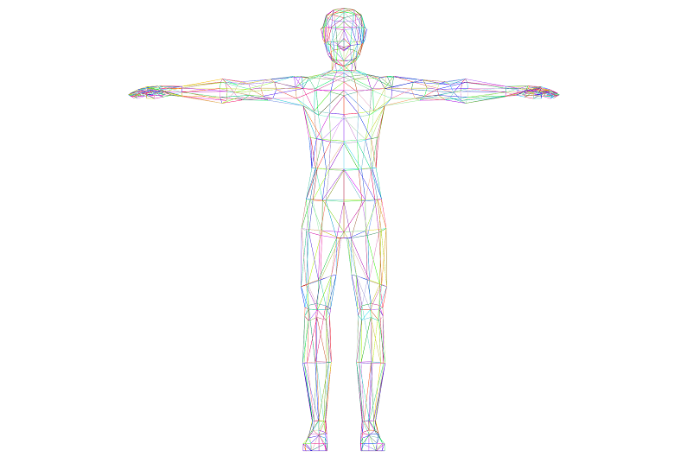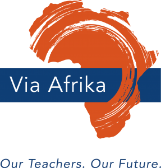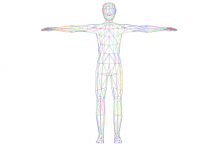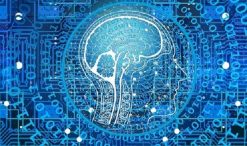
Your choice: Fight and flight or rest and digest?
19th December 2019
Is rewiring the brain a bad thing?
19th December 2019Technology is likely to create 4.5 million new jobs in South Africa by 2030.
In a report released by McKinsey in September 2019 it is noted that by 2030, 3.3 million existing jobs will disappear because of technology in South Africa. This probably doesn’t surprise you.
When you consider what the possibilities of technology and Artificial Intelligence are, the reality is that technology will take over jobs. We have seen it during the 1IR, the 2IR and the 3IR. There is no reason why there should not be a loss of jobs as we move deeper into 4IR.
Jobs that machines can do; they will do. However, jobs that only humans can do – like teaching – will at best be assisted by machines but will always be done best by humans. And of course, new jobs will become available to do things we now will be doing with machines.
In fact, the Kinsey report I referred to earlier, notes that technology is likely to create 4.5 million new jobs in South Africa by 2030.
But what does that really mean for the teacher? How do we prepare our learners for this unknown jobs future?
What we need to be doing is reconfiguring the curriculum so that our learners are developing the skills they will need to be effective in the future. All the predictions and research are showing that while we don’t know exactly what the jobs in the next ten or twenty years will be, what all of them will need are those very poorly named, soft skills.
It seems that every list of 21st Century Skills is slightly different. However, there are some key skills we should be teaching.
I would argue that these can be summarised as: Self mastery, Interpersonal mastery and Digital fluency.
Self mastery
I would define self mastery as the ability to manage yourself in ways that allow for great success. You have self mastery when you have the following skills.
Adaptability
You are not overwhelmed by change but accept change and use what you learn about yourself to adapt as you need to grow in the ever-changing environment. This includes knowing how to learn, and when necessary unlearn things when they are not useful.
Cognitive flexibility
You are able to think critically and so are able to solve complex problems creatively using sound judgement. This is backed up with effective decision making.
Interpersonal mastery
I would define interpersonal mastery as the ability to manage relationships with others in ways that allow for great success. When you have interpersonal mastery, you have the following skills.
Communication
You know how to communicate with others towards win-win rather than any other power scenario. You can express yourself so you get what you need and want. You appreciate listening to others and know how to respond effectively. Finally, you know that you need to choose the method of communication to achieve your goals.
Collaboration
You know how to work with others in both the physical and virtual worlds (like Zoom, Skype, social media, online collaboration in productivity suites). This skill goes fingers-on-keyboard with people management skills like coordinating with others and negotiation skills.
Citizenship
If we wish to live in a thriving, healthy world, we are going to need to become positive citizens in our communities, countries and on the planet. We need to develop a service orientation to our society.
Digital fluency
We are going to need digital fluency, not just digital literacy.
A digitally literate person is someone who is able to operate limited Information Communication Technologies, knows how to use a password, can do a basic internet search and can use some applications like Word, Facebook and Google Chrome.
These people are dangerous.
They forward social media messages that lead to xenophobic attacks and other such atrocities. They give their bank details online because they won millions in a lottery. They are a danger to themselves and others.
A digitally fluent person on the other hand is a competent user across ICTs and appreciates the strengths and weaknesses of one against the other. It is easier to do a PowerPoint presentation on a laptop than on a phone – but they can use only their phone if they have to.
They appreciate cyber security issues. They have information fluency – they know how to interpret information in all forms so as to extract essential information and authenticate it so they can act effectively.
They question a social media post’s origins and authenticity before believing it, or even sharing it.
Let’s thrive
You may have noticed the mythical 4Cs in the discussion – communicate, collaborate, critical thinking and creativity – but I hope you see that what we teach our learners now goes a long way further than just that.
And of course, I am not saying we must get rid of content. Not at all. To develop all of these skills we need to know things about things – we must consider though how the content is taught, and for what purpose.
The 4IR World is a wonderful place to live in; and with self and interpersonal mastery and digital fluency our learners – and we too – will thrive.





